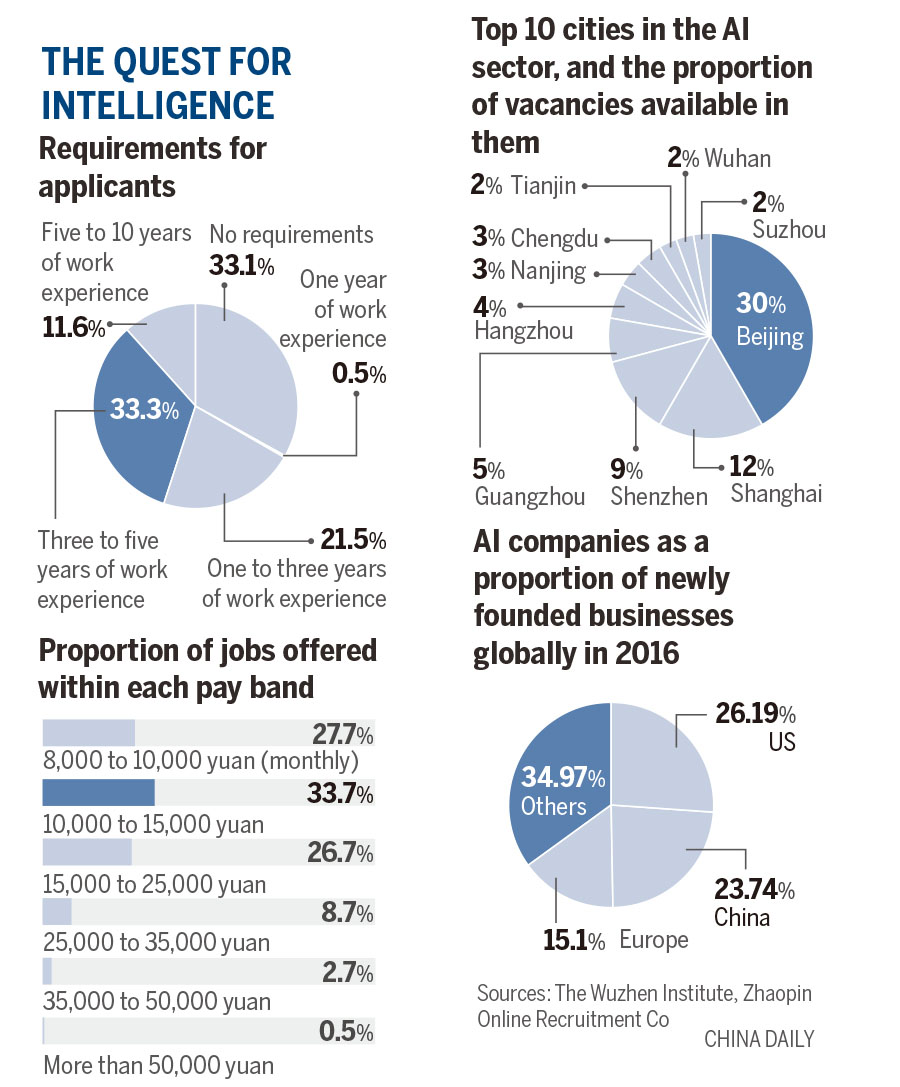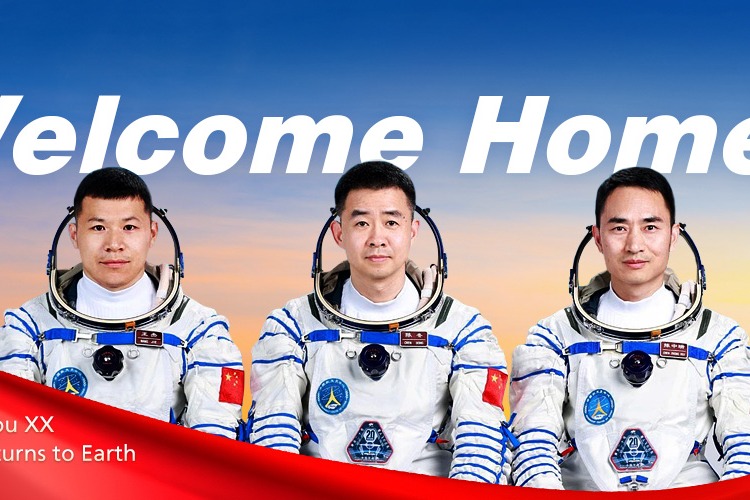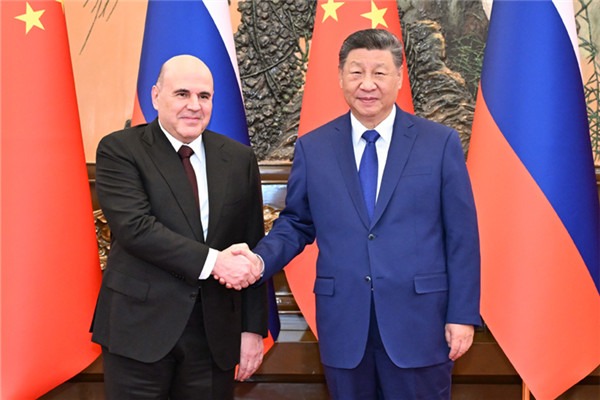Competition for talent intensifies as China's AI industry develops


Recruitment thresholds
In response, many employers have lowered their recruitment thresholds, according to Wang. Zhaopin's research suggests that about 33 percent of companies in the sector specify no work experience requirements, while about the same proportion only require candidates to have spent three to five years in the industry. Moreover, the educational threshold for 95 percent of companies is a bachelor's degree or even a lower qualification.
Despite the sector's rapid development, China still lacks the innovative talent that would make it a world leader by 2030, as required by a guideline issued by the State Council, China's Cabinet, in July.
However, the country's abundant data resources and strong government support will assist in training new talent and narrowing the gap with developed countries, experts said.
The core of AI is to offer products that have the ability to provide automatic services in highly uncertain environments.
Unfortunately, instead of producing core innovations, most Chinese AI companies and engineers are simply applying existing technologies, said He Qing, deputy secretary-general of the Chinese Association for Artificial Intelligence, who noted that innovative talent is scarce.
According to Zhaopin, one of the biggest problems is that AI companies are having great difficulty recruiting high-end talent, such as specialists earning 15,000 yuan to 35,000 yuan a month. At present, about 40 percent of AI engineers work at lower levels, earning 10,000 yuan to 15,000 yuan a month.
In addition, multinational companies have also joined the search for AI talent. Late last year, Google announced the launch of a new AI research center in Beijing.
The center aims to employ local talent, according to Li Feifei, chief scientist at Google Cloud AI and Machine Learning, writing on the Google blog website. "We've already hired some top experts, and will be working to further build the team in the months ahead," she said.
According to the Wuzhen Institute, the arrival of international companies is likely to prove beneficial for the sector.
"Accomplished veterans are scarce in China's AI industry, but the country is rich in bright, hardworking computer science graduates with expertise in AI-related fields. These are the people international giants prefer," the institute said in a statement sent to China Daily. It added that Microsoft and Google have established research institutes or centers in Beijing to attract graduates from Tsinghua and Peking universities, two of the country's top schools. "These graduates will receive great training if they work for companies of that caliber," the institute said.
- LDC CEO: I see potential and opportunities in China
- Canton Fair closes with record global attendance, showcasing trade resilience
- Hainan surpasses Dubai resident's expectations
- US enterprise eyes deeper ties and strategic focus at CIIE
- Netherlands' firm Louis Dreyfus to introduce new products at CIIE
- CIIE to be fully powered by renewable energy





































